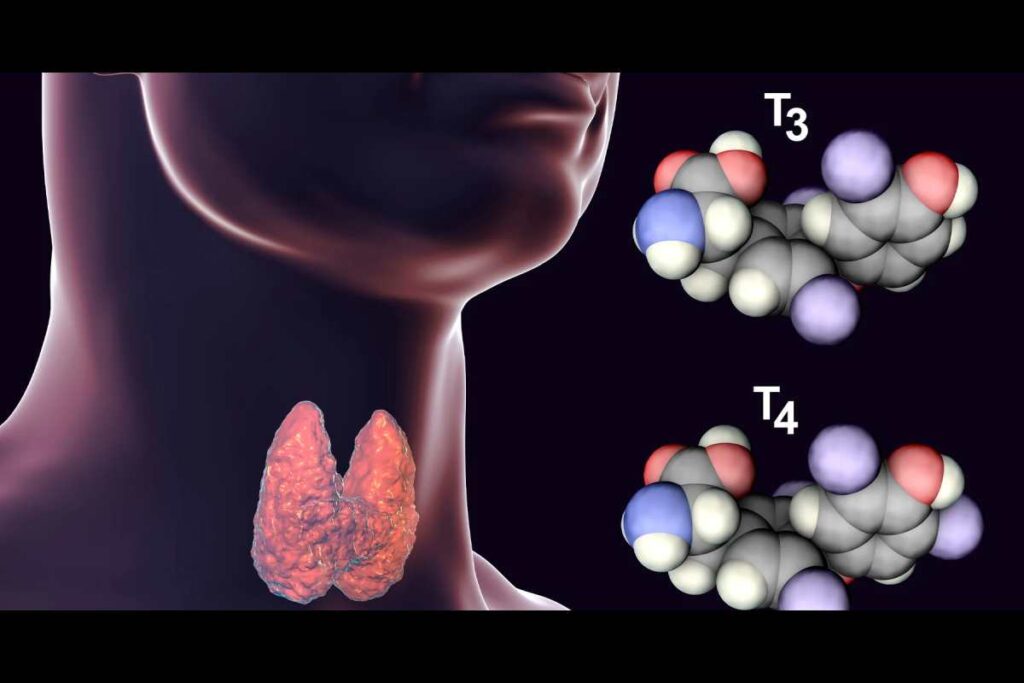T3 Hormone
The human body is generally a finely tuned feat of biological engineering, but sometimes things go wrong, and you are left needing medical intervention. One of the more common failings of the human body is the thyroid gland: a butterfly-shaped organ which is to be found at the front of the throat, just above the point where your collar bones come together.
Table of Contents
What Does the Thyroid Do?
The thyroid’s job is both a simple one and a complicated one: it is merely to produce, in appropriate quantities, sufficient amounts of two hormones: T3 and T4, respectively, to meet the body’s needs. Once produced, these hormones have an impact on many parts of the body, from the metabolism, which almost literally keeps you ticking over, to controlling various emotions.
Why Does it Go Wrong?
Sometimes the thyroid’s production method is disrupted by illness or accident. These illnesses can cause either an underproduction in the thyroid hormones or an overproduction in them, known as hypothyroidism and hyperthyroidism respectively. Unfortunately there is no ‘cure’ for many of the illnesses that cause these thyroid disruptions, except in the case of some thyroid cancers which can be pushed in sufficient remission for normal thyroid function to resume.
How Is Thyroid Illness Managed?
Hyperthyroidism can neither be cured, nor treated, save by so completely reversing the condition as to cause hypothyroidism. For example, the thyroid is removed or otherwise treated to stop the overabundance of thyroid hormones from flooding into the body, causing essentially the replacement of one thyroid condition with the other.
This is because hypothyroidism is treatable. Again, thyroid disease is not curable, unfortunately, treatment must endure for the rest of the patient’s life – but the good news is that with the right medication, that life can be a long, fulfilled and happy one.
Hypothyroidism is managed by supplying a mixture of artificial hormones T3 and T4. Triiodothyronine, or T3, as it is more familiarly known, is a vital medication as it is something of a general dogsbody when it comes to your health. It is responsible for good digestion, heart health, maintenance of the skin and bones, and also plays a part in brain health. When you are ill, your T3 levels drop, so finding that you have low levels of T3 when you do not have hypothyroidism can be a sign of long-term illness.
When is T3 Hormone Prescribed?
Usually a blood test will confirm that your thyroid levels are low, and your doctor will most likely prescribe T3, or a mixture of T3 and T4 (check out this T3 medication guide for more information). You will almost certainly have a period of trial and error with your medication as you and your doctor find the perfect balance and dose for your needs. Do take your medication as advised, and consult your medical professional if you feel your current dose is not right: thyroid levels are a very tricky thing to get right, and you and your doctor will get there all the quicker if you work cooperatively until you are feeling like your old self again.

